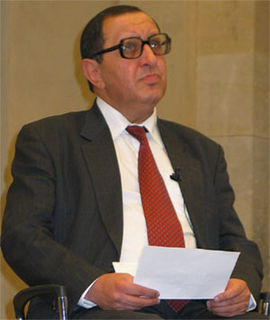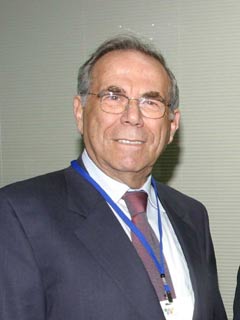A Quote by Donald Trump
I saw a report yesterday. There’s so much oil, all over the world, they don’t know where to dump it. And Saudi Arabia says, "Oh, there’s too much oil." They -- they came back yesterday. Did you see the report? They want to reduce oil production. Do you think they’re our friends? They’re not our friends.
Related Quotes
Saudi Arabian oil production is at or very near its peak sustainable volume (if it did not, in fact peak almost 25 years ago), and is likely to go into decline in the very foreseeable future. There is only a small probability that Saudi Arabia will ever deliver the quantities of petroleum that are assigned to it in all the major forecasts of world oil production and consumption.
So far in facing this huge [peak oil] challenge, our political/economic system seems unable to cope with reality. We are forced to carry on living in an illusion that we have so much time to adapt to post-oil that we don't even need to be talking or thinking much about what a world without plentiful oil would look like. Reality has become too dangerous.
There's a huge misconception that it's all about the oil, and the truth is there's actually not much oil left in Abyei. The misperception arose because when the peace agreement was signed in 2005, Abyei accounted for a quarter of Sudan's oil production. Since then, the Permanent Court of Arbitration in The Hague defined major oil fields to lie outside Abyei. They're in the north now, not even up for grabs, and they account for one percent of the oil in Sudan. The idea that it's "oil-rich Abyei" is out of date.
In the near term, oil is galloping ahead and leading our economy. We have to corral the "horse" and gradually reduce our dependence on oil and coal, in their present forms. Green-energy investment is inherently high-tech, and we could lead in the next-generation energy technologies, as we did and do now with oil and gas. All it takes is leadership!
High prices can be the result of speculation, and maybe plunging prices can be attributed to the end of speculation, but low prices over time aren't caused by speculation. That's oversupply, mainly by Saudi Arabia flooding the market with low-priced oil to discourage rival oil producers, whether it's Russian oil or American fracking.
I've been saying for a long time, and I think you'll agree, because I said it to you once, had we taken the oil - and we should have taken the oil - ISIS would not have been able to form either, because the oil was their primary source of income. And now they have the oil all over the place, including the oil - a lot of the oil in Libya, which was another one of her disasters.
I can at once refute the statement that the people of the West object to conservation of oil resources. They know that there is a limit to oil supplies and that the time will come when they and the Nation will need this oil much more than it is needed now. There are no half measures in conservation of oil.
Look, I don't think President Obama would have bowed to the ruler of Saudi Arabia if he didn't have oil to the degree that the Saudis do. I think they and other producing states, almost all of whom, except Norway and Canada, are dictatorships or autocratic systems, have thrown their weight around because of oil.

































